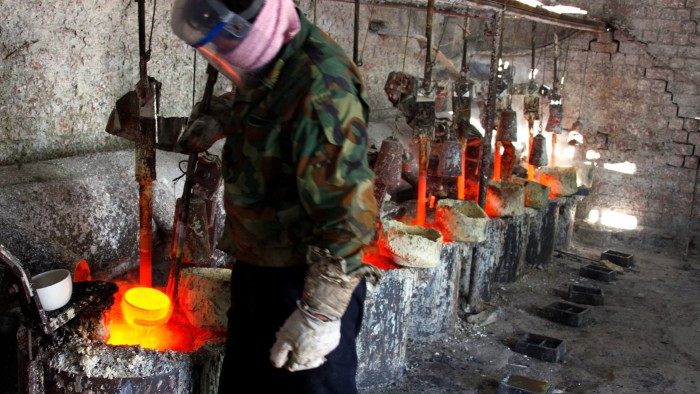China’s Rare Earth Export Dilemma: The Price of Sensitive Information
As the global demand for rare earth elements (REEs) surges, China finds itself at a crossroads. The nation, which dominates the supply of these critical materials, is tightening its grip on exports, raising alarms among companies reliant on these resources. The latest developments indicate that Chinese authorities are now requiring companies to divulge sensitive information, a move that could potentially reshape global supply chains and impact various industries.
The Context of Rare Earth Elements
Rare earth elements are a group of 17 metals essential for a wide array of technologies, from smartphones to renewable energy solutions. China produces more than 60% of the world’s rare earth supply, making it a pivotal player in the global market. The strategic importance of these materials has drawn the attention of governments and industries worldwide, especially as nations seek to reduce dependency on a single supplier.
The New Demands for Sensitive Information
Recent reports indicate that the Chinese government is imposing stricter regulations on rare earth exports, which include requirements for companies to disclose proprietary information about their technologies and production processes. This move, described by industry insiders as both alarming and unprecedented, raises significant concerns regarding intellectual property rights and competitive advantages.
Implications for Global Supply Chains
The ramifications of these new regulations extend beyond China’s borders, potentially disrupting global supply chains. Companies in industries such as electronics, automotive, and renewable energy that rely on rare earth elements could face increased costs and delays. Analysts suggest that these changes could accelerate the diversification of supply sources, prompting countries like the United States and Australia to invest heavily in domestic mining and processing capabilities.
Reasons Behind China’s Export Strategy
To understand the motivations behind China’s tightening export measures, one must consider several factors:
- National Security: By controlling the flow of rare earth elements, China aims to enhance its national security and economic stability.
- Market Control: Restricting exports could allow China to manipulate global prices, potentially increasing their revenue from these resources.
- Pressure on Foreign Competitors: Requiring sensitive information from foreign companies could weaken their competitive edge, allowing Chinese firms to gain an upper hand.
The Response from Industry Leaders
Industry leaders have voiced their concerns regarding these new demands. Major corporations, including those in the tech and automotive sectors, are calling for a united response to mitigate the risks associated with China’s export restrictions. Some companies are exploring alternative suppliers, while others are investing in research and development to find substitutes for rare earth elements.
The Future of Rare Earth Supply Chains
Looking ahead, the landscape of rare earth supply chains is poised for significant transformation. Experts predict an accelerated shift towards localization of supply chains, with countries striving to develop their own rare earth resources. Governments worldwide may also implement policies to encourage domestic production, ensuring a more secure and stable supply of these critical materials.
Conclusion
China’s tightening grip on rare earth exports and the accompanying demands for sensitive information represent a pivotal moment in the global market. As companies navigate this evolving landscape, the need for strategic adaptations has never been more critical. The future of industries reliant on rare earth elements will largely depend on how effectively they can respond to these challenges and innovate in the face of uncertainty.
See more Business Focus Insider Team

